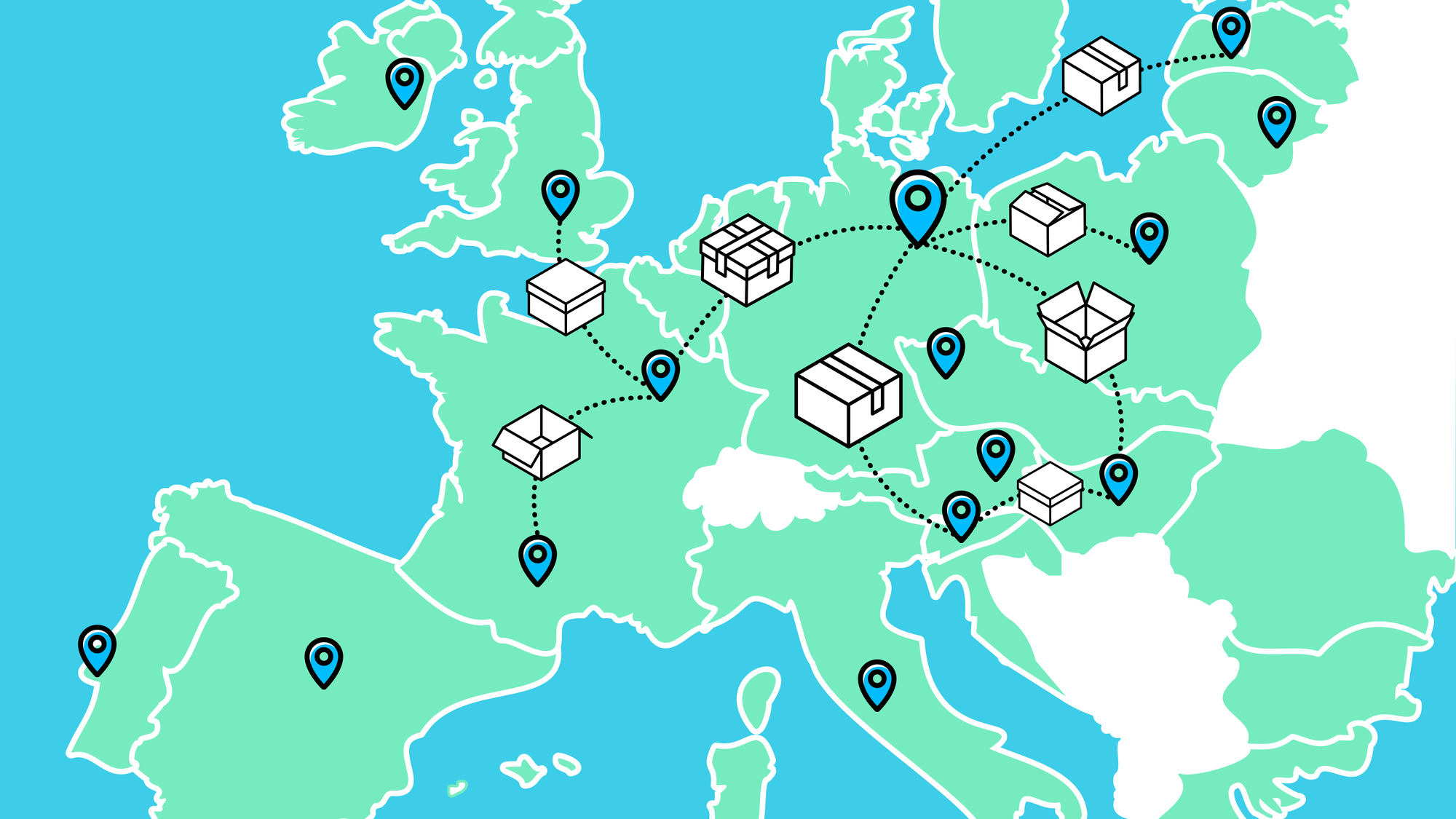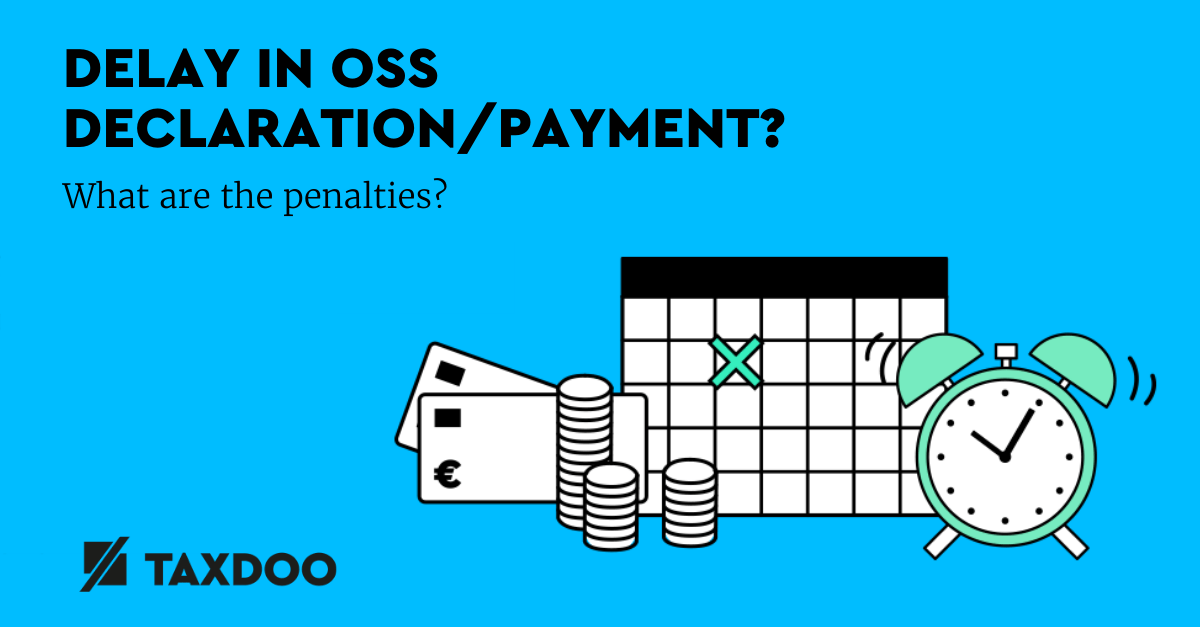One-stop shop: Not compatible with trade on Amazon & Co.

Update 27.05.2021: We have collected the latest information on the One Stop Shop and the implications for Amazon traders in the OSS Knowledge Pool.
From 1 July 2021, the EU Member States want to see a fundamental simplification of cross-border Value Added Taxcompliance for online traders.
Comprehensive changes in the law combined with the technology of the so-called one-stop shop are intended to free the EU’s internal market from one of the last hurdles: VAT law at the 1993 level.
In this blog post we show you that this legal reform will lead to a much more complex situation for many traders and that programs such as Amazon Pan EU will have to be rethought.
But let’s start from the beginning.
Change in the law as of 1 July 2021
Disclaimer: The change in the law explained below was only recently postponed by half a year – to 1 July 2021.
Within the framework of the new regulation of § 3c UStG – which regulates the place of a cross-border supply within the EU to private individuals – the national supply thresholds, as shown in the following diagram, will no longer apply.
National delivery thresholds – here the example of France – are to be abolished as of 1 July 2021
Instead of the national delivery thresholds, an EU-wide turnover limit for cross-border deliveries to non-entrepreneurs in the EU of 10,000 euros (net) has been introduced.
If you or your client exceed this limit, all deliveries to non-entrepreneurs in the EU are subject to tax in the respective country of destination.
This will lead to the fact that already every medium-sized trader will be taxable in almost all EU countries, as long as he does not deactivate cross-border shipping.
For this reason, online traders should be able to use the so-called One-Stop-Shop (OSS), which should enable them to report all relevant outgoing sales centrally via an interface – the OSS – in their home country.
In this case, local tax registration in the individual EU states would no longer be necessary.
The following diagram illustrates the process – even though in the expansion stage of OSS on 1 July 2021, initially only B2C transactions can be processed via OSS.
Source: EU Commission
As we already explained in 2017, not all online retailers will be able to do this.
Every online retailer who uses even one fulfillment center in another EU country will still have to register locally in another EU country.
Why?
Cross-border fulfillment byAmazon, Zalando, Cdiscount,… versus OSS
The use of cross-border fulfillment structures – e.g. Amazon Pan EU – means that from a VAT point of view a special type of transaction regularly arises.
- intra-community transfers, and
- Intra-community acquisitions.
Example of inner-community movements / acquisitions
These transactions lead to tax and therefore registration obligations in other EU countries, as shown in the chart.
Problem: These transactions cannot be reported via the OSS because they are B2B transactions. They must still be declared – after a local registration – by submitting local Value Added Taxdeclarations.
For many merchants, nothing will change – on the contrary: Value Added Tax-compliance will take on an even greater significance for most of them than it already does today.
Are perhaps designs, workarounds, simplifications. conceivable?
Let’s look at three thoughts on this.
A. Is it possible to report these shipments locally and the rest via the OSS?
Yes, it’s possible. However, two compliance strands must be established within the company.
- Distance sales via the OSS and
- all other transactions (local sales, shipments, …) via local declarations.
B. Is it possible to simply omit the notifications of such shipments?
No!
If the cross-border movements of goods by Amazon or to another logistics provider are not reported, they are automatically subject to tax since 1 January 2020.
Anton Meier brings goods to France. Since he does not report this transfer and does not have a French VAT ID, he must pay tax on the transfer.
This means that you or your clients would have to pay Value Added Tax for goods shipments for which no money is ever received, as these are fictitious sales for VAT purposes.
Can the OSS be used selectively – i.e. at least in countries where fulfilment centres are not used?
C. Where a fulfillment center is used, can you report locally and the rest via OSS?
Yes!
The draft law says on this question (see § 18j para. 1 sentence 4 UStG n.F.).
Participation in the special taxation procedure – i.e. OSS – is only possible uniformly for all EU Member States and all transactions – in this case supplies to non-entrepreneurs (…).
This means: Cross-border deliveries to non-entrepreneurs (so-called distance sales) must be reported obligatorily for all EU states either completely via the OSS or completely locally for all EU states.
Drastic consequences – in the worst case: registration obligations in almost all EU countries and problems for Amazon & Co.
This will lead to a situation where traders using cross-border fulfilment – e.g. Amazon CEE or Amazon Pan EU – will have to register for tax in every country to which they send even one package to non-entrepreneurs if they fail to establish two compliance strands: reporting remote sales via the OSS and everything else locally.
For a marketplace such as Amazon, for example, which regularly motivates its marketplace traders to store their products throughout the EU and is constantly expanding this capacity, this can become a considerable problem. The marketplace lives excellently from fulfilment fees and sales commissions.
If many traders were now to consider reducing their activities as a result of the above-mentioned consequences, this would mean a considerable cutback for the giant in Europe – thanks to a legal reform that was intended to do good, but largely has the opposite effect.
Taxdoo is the compliance platform for the digital economy
… and provides the leading online merchants in Europe with the handling of the ongoing EU-wide Value Added Tax Compliance, Intrastat and financial accounting (Taxdoo is a partner of DATEV) also offers numerous other compliance services via a unique platform.
If you want to know more about how you Value Added Taxcan efficiently and securely map compliance, financial accounting and much more via a platform, then book your individual and free initial consultation with the compliance experts from Taxdoo!
You are also welcome to register for our regular demo webinar in which we will introduce Taxdoo and our compliance services and answer your questions personally.
Weitere Beiträge

One-Stop-Shop (OSS) EU VAT for E-Commerce

OSS Declaration: Foreign overdue reminders threaten exclusion from the OSS despite timely filings and payments
